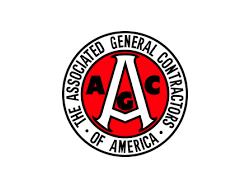Construction Employment Up in 248 Metro Areas in January YOY
Washington, DC, March 16, 2018-Construction employment increased in 248 out of 358 metro areas between January 2017 and January 2018, declined in 68 and stagnated in 42, according to a new analysis of federal employment data released today by the Associated General Contractors of America.
Association officials said that future construction job gains could be undermined, however, as new tariffs force contractors to pay more for steel and aluminum products and dampen demand for new construction.
"The new tariffs are already leading to increases in what many contractors are paying for steel and aluminum products," said Ken Simonson, the association's chief economist. "Most contractors will be unable to pass along these increased costs, leaving less money to invest, ironically, in steel construction equipment as well as personnel."
Riverside-San Bernardino-Ontario, California added the most construction jobs during the past year (10,600 jobs, 12%), followed by Phoenix-Mesa-Scottsdale, Arizona (9,900 jobs, 9%); Houston-The Woodlands-Sugar Land, Texas (9,200 jobs, 4%); Los Angeles-Long Beach-Glendale, California (9,000 jobs, 7%) and Sacramento--Roseville--Arden-Arcade, California (8,400 jobs, 16%).
The largest percentage gains occurred in the Merced, California metro area (38%, 800 jobs) followed by Lawrence-Methuen Town-Salem, Mass.-New Hampshire (26%, 700 jobs); Midland, Texas (24%, 5,900 jobs) and Greeley, Colorado (23%, 3,500 jobs).
The largest job losses from January 2017 to January 2018 were in Baton Rouge, Louisiana (-6,600 jobs, -13%), followed by St. Louis, Missouri-Illinois (-3,300 jobs, -5%); Montgomery County-Bucks County-Chester County, Pennsylvania (-2,600 jobs, -5%); Columbia, South Carolina (-2,500 jobs, -12%) and Camden, New Jersey (-1,700 jobs, -8%). The largest percentage decreases for the year were in Auburn-Opelika, Alabama (-32%, -1,200 jobs) followed by Monroe, Michigan (-16%, -300 jobs); Baton Rouge and Columbia, South Carolina.
Association officials said that a better way to support the domestic steel and aluminum industries is to increase funding for needed infrastructure improvements. They cautioned that the tariffs announcement by the President last week would not only increase the cost of many construction projects, but it could prompt retaliatory measures from other countries that hurt U.S. manufacturers and shippers, impacting demand for new factories and transportation facilities.
Related Topics:Associated General Contractors of America , RD Weis
